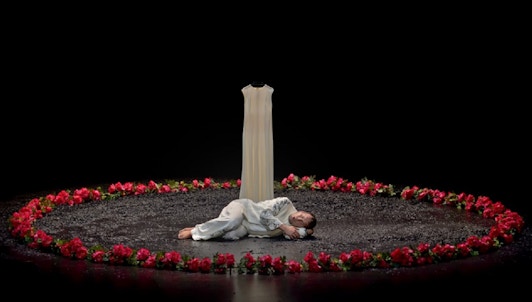Composed in 1647, Luigi Rossi's Orfeo is an opera in three acts with a prologue. His most famous work, the opera was commissioned by Cardinal Mazarin. Like Monteverdi's L'Orfeo and Offenbach's Orpheus in the Underworld, this work was inspired by the ancient myth of Orpheus and Eurydice.
Stage director Jetske Mijnssen commented that, "this myth is universal, the main character Orfeo is a man, like all of us he wishes he could find again a lost love." Soprano Judith van Wanroij takes on the role Orfeo while soprano Francesca Aspromonte is Euridice. The period-instrument ensemble Pygmalion and the Chœur de l'Ensemble Pygmalion are conducted by their founder and director Raphaël Pichon.
Plot:
Before marrying her love Orfeo, the beautiful Euridice consults the oracle, who warns them of bad omens surrounding in their futures. Despite the oracle's words, the two lovers move forward with their plans, driven by an unbounded love. Their marriage upsets Venus, who wanted Euridice to marry her protégé Aristeo, and the goddess' anger soon bears fruit: Euridice is bitten by a snake and dies. The desperate Orfeo decides to journey to the Underworld to rescue her. The god of the Underworld agrees to give Euridice back to him, provided that he does not look at her until they reaching the world of the living. Unfortunately, Orfeo cannot control himself... he breaks his promise and turns around to see Euridice, thus losing her forever. Mad with despair, he dies himself.
New production:
A French premiere
Co Opéra national de Lorraine, Royal Opera | Château de Versailles Spectacles, Opera National de Bordeaux, Caen Theatre and Centre de Musique Baroque de Versailles.
Photo: © Opéra national de Lorraine

